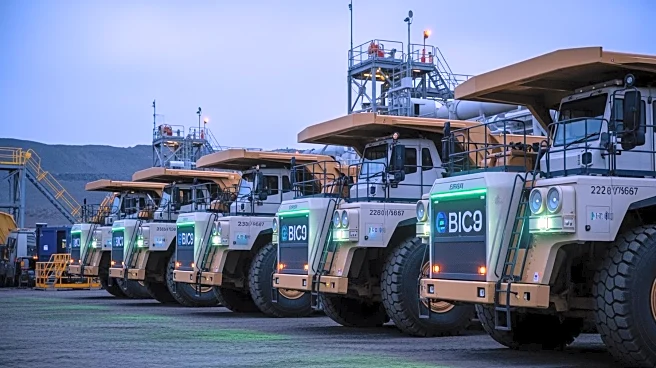What's Happening?
Tonly Heavy Industries has delivered a fleet of all-electric 75-ton payload TLE120 trucks to CMOC, a major producer of molybdenum and other minerals. This delivery marks a strategic collaboration aimed
at advancing green mining initiatives. The trucks are equipped with advanced lithium iron phosphate batteries and a robust chassis designed to handle challenging mining conditions. The partnership between Tonly and CMOC began in 2019 with the purchase of diesel trucks, and has now evolved to include electric vehicles, reflecting a mutual commitment to sustainability.
Why It's Important?
The introduction of all-electric trucks in mining operations represents a significant shift towards sustainable practices in the industry. By reducing reliance on diesel-powered vehicles, CMOC can lower its carbon footprint and operational costs, while enhancing efficiency and safety. This move aligns with global trends towards greener technologies and could set a precedent for other mining companies to follow. The collaboration also highlights the growing importance of strategic partnerships in driving innovation and environmental responsibility in resource extraction.
What's Next?
CMOC and Tonly are expected to continue their collaboration, potentially expanding the use of electric vehicles across more mining sites. This could lead to further advancements in green mining technologies and practices. As the industry adapts to environmental challenges, other companies may adopt similar strategies, increasing demand for electric mining equipment. Regulatory bodies might also play a role in encouraging or mandating sustainable practices, influencing the pace and scale of adoption.
Beyond the Headlines
The shift to electric mining trucks could have broader implications for the industry, including changes in workforce training and infrastructure development. As electric vehicles become more prevalent, there may be increased focus on battery technology and recycling, as well as the development of charging networks in remote areas. This transition could also impact global supply chains, particularly in the sourcing and processing of battery materials.








